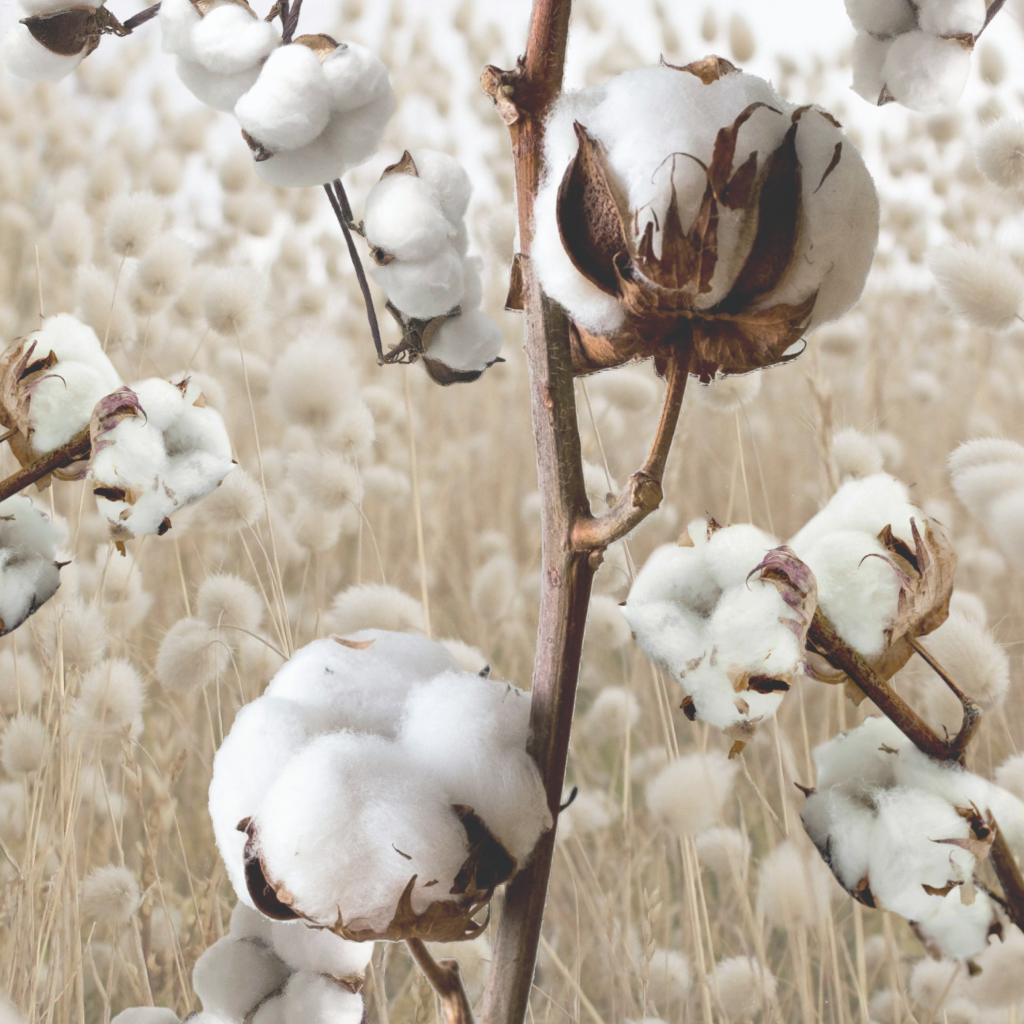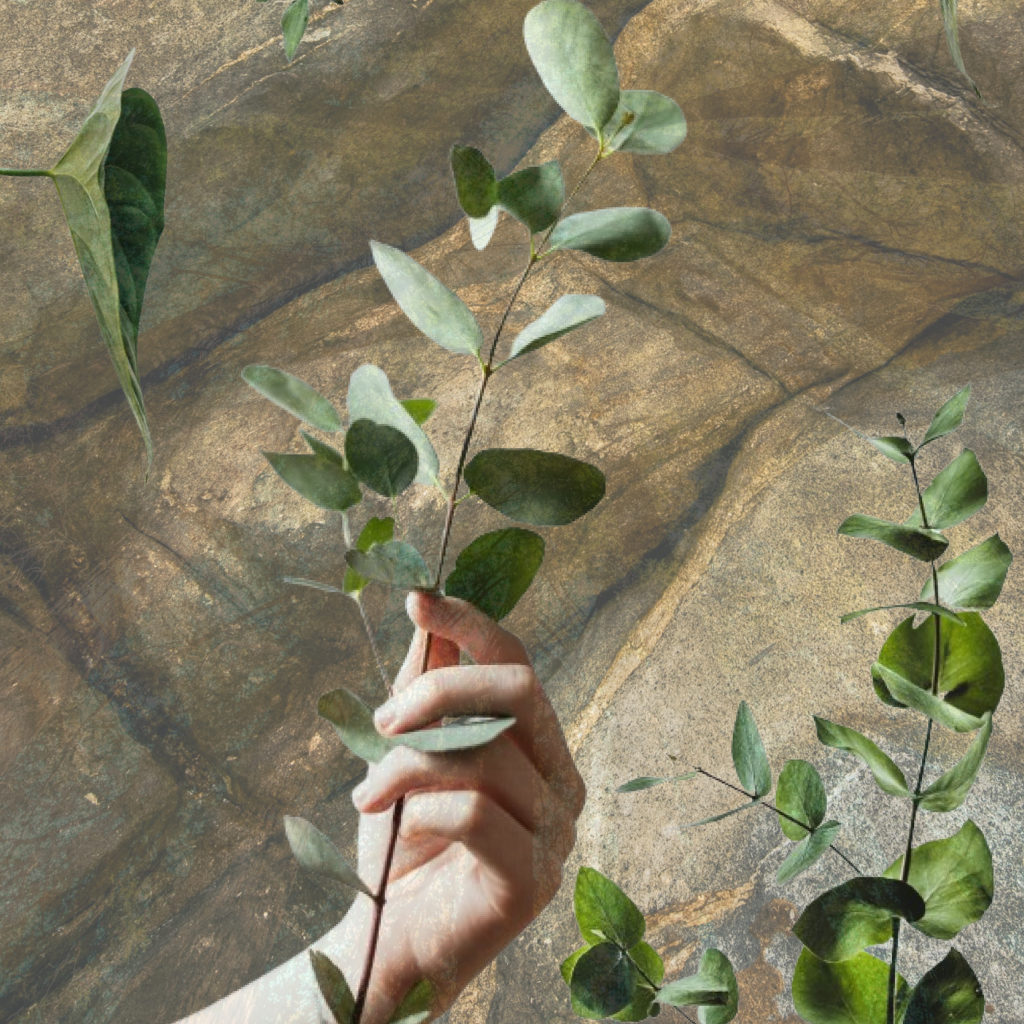Are jeans sustainable? The History and Makings of denim

After the glorious return of the low-rise jeans, fashionistas and influencers seem to be more obsessed than ever with denim. While fashionable, producing the iconic blue fabric can have a high environmental impact. What does denim mean for our planet ?
Brief History of Jeans
Officially invented in 1873 by Levi Strauss and Jacob Davis, jeans actually have a history slightly more complicated. The origin of the fabric itself, denim, is still up for debate this day — it might come from Nîmes (France) or even Genova (Italy). Levi Strauss, a german salesman, brought the fabric to the United States.
The sturdy and durable textile was ideal for hard labour. Jacob Davis, an american tailor, had the idea to transform it into pants for workers and miners during the Gold Rush in the American Far-West.
Levi and Jacob then became partners and founded Levi’s & Co. The attire quickly became a necessity for workers all-over the American Far-West — and the jeans entered history.
The dark blue called “indigo” is its most traditional colour, but jeans now come in many shades and hues. From dark to light blue, by way of black and funky colours, it has become a versatile piece of clothing, that transcends social class.
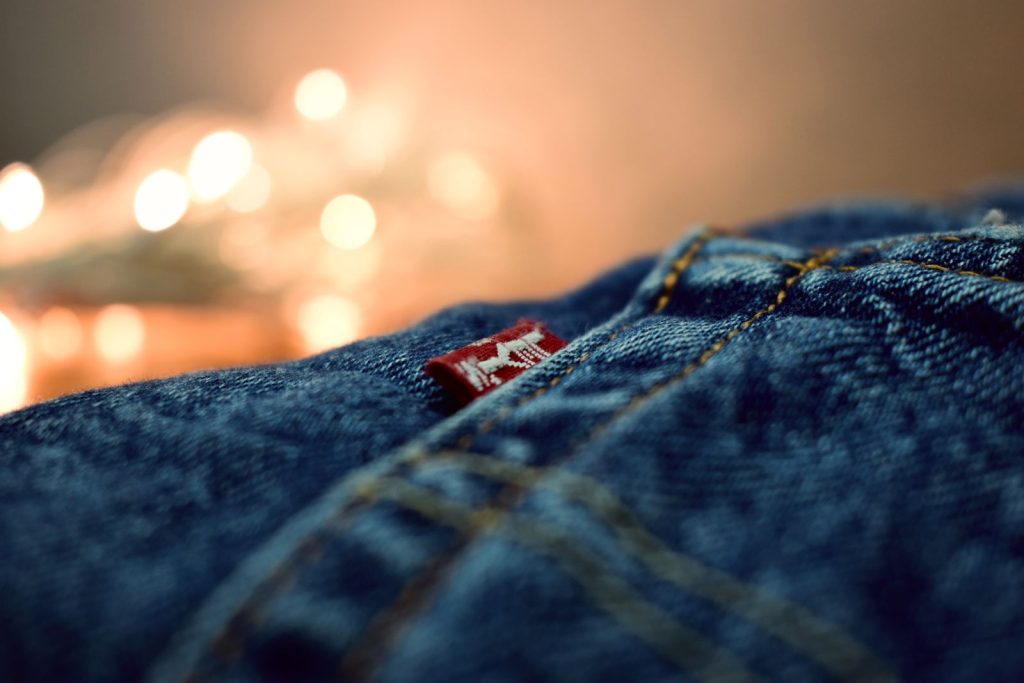
The true impact of virgin denim
While this did not seem like a problem back in the late 1800s, making denim is an extremely water-intensive process. A simple pair of traditional jeans requires more than 3,500 liters of water to make.
Nowadays, consuming so many natural resources on a single article has become careless. Especially when one knows that jeans are mainly produced in arid areas, since cotton requires warm weather. For instance, India is the world’s biggest cotton producer.
Over 50% of denim is produced in Asia, mainly in India, China, Turkey, Pakistan, and Bangladesh. You’ve guessed it: jeans are not only made with extravagant quantities of water, they also have to be shipped halfway across the world.
Cotton production also uses a high amount of chemicals and insecticides, toxic for the environment and for local farmers.
During manufacturing, chemical dyes can release a handful of harmful chemicals such as carcinogens, a toxin that induces cancer.
How to make sustainable jeans
The call for sustainable wear gets stronger everyday. The urgency is here and brands are beginning to understand that. Even Levi’s & Co. has publicly committed to transform their brand and create more sustainably.
There are many ways of making jeans more equitable :
- Since it is made from cotton, denim is a totally recyclable fabric! It’s a sustainable fiber, as sturdy as our favourite trousers. It can be broken down, reconstituted and transformed as new.
- Alternative dyes, made with safer chemicals, can easily be used on the fabric to avoid contamination on production site.
- Upcycling is also a creative way of giving new life to old denim. Upcycled denim can come in different colours and original patterns. It completely shakes up the status quo — what could be more fashionable?
- Modern technology is slowly but surely becoming a path to reducing denim-related water consumption. One could digitally “print out” the chosen colours or patterns directly on their denim — without using any water at all!
Sustainable denim brands in Europe
Oh, but where to find these marvelous, planet friendly jeans you ask? Easy! Here’s a selection of the best sustainable brands in Western Europe:
- Germany — Armedangels
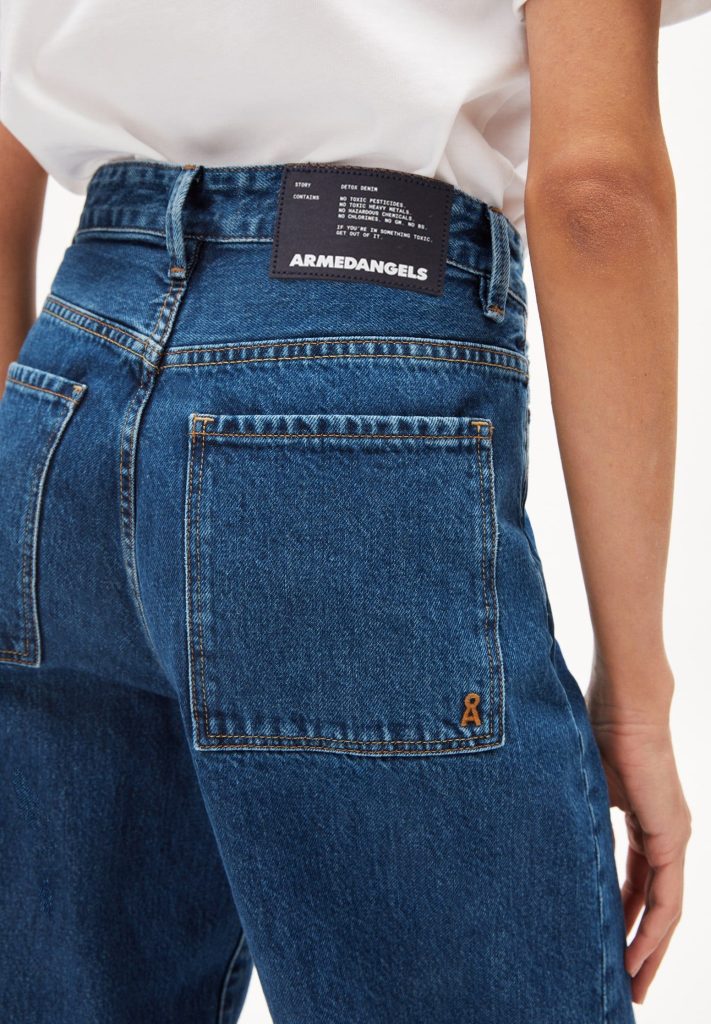
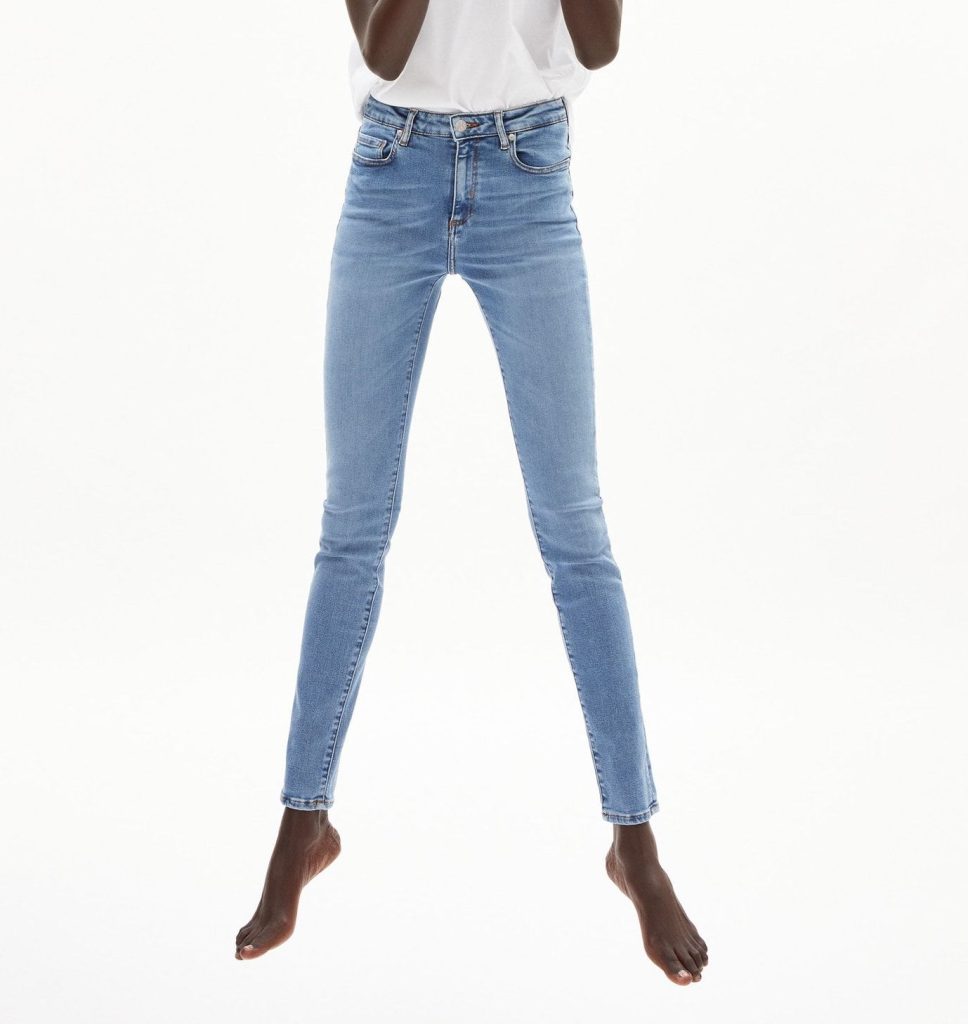
Their “DetoxDenim” are timeless cuts — made with organic and recycled cotton, with a low carbon footprint. Armedangels’ pieces are certified by GOTS and Fair Wear Foundation.
- France — 1083
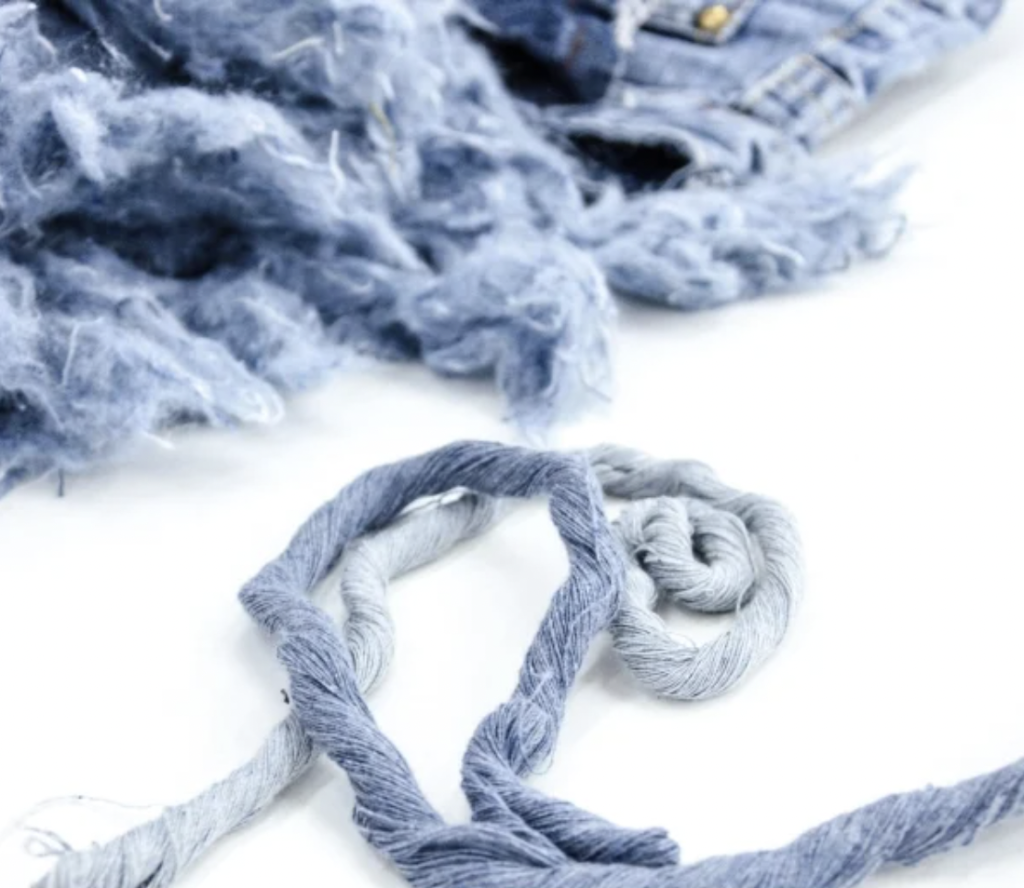

Known for their locally produced cargo and ample cuts, 1083 denim is also made from GOTS certified fair-cotton.
Live in Paris? Shop to your heart’s content in Our Favorite Parisian Vintage Shops.
- Sweden — Nudie Jeans
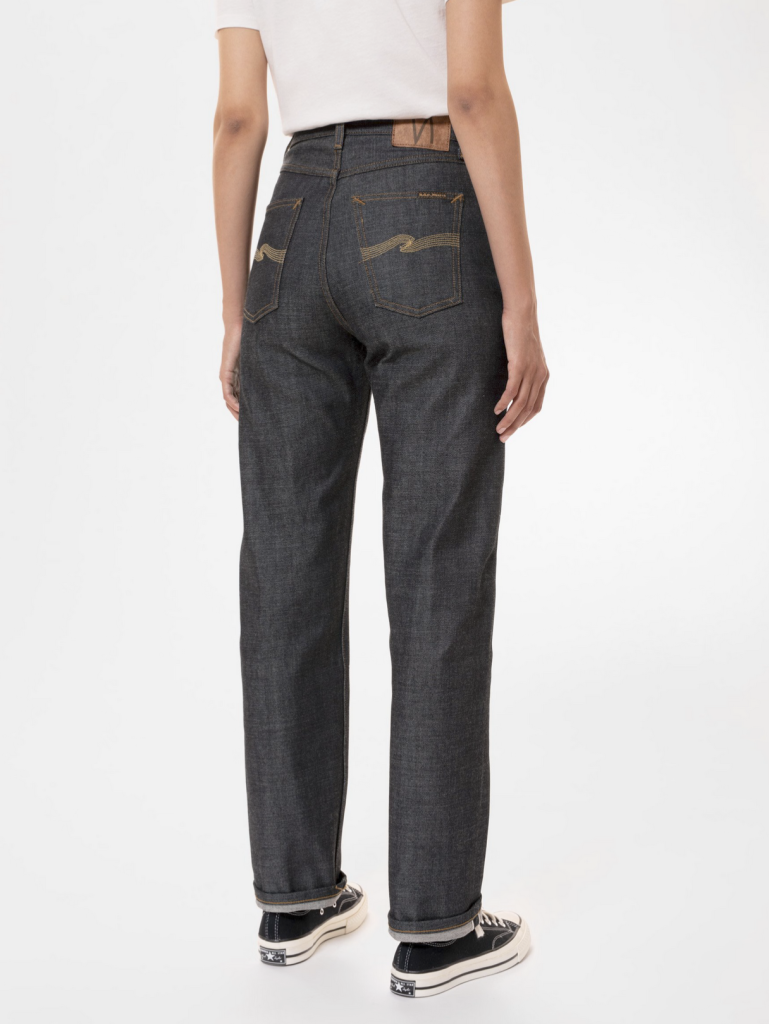
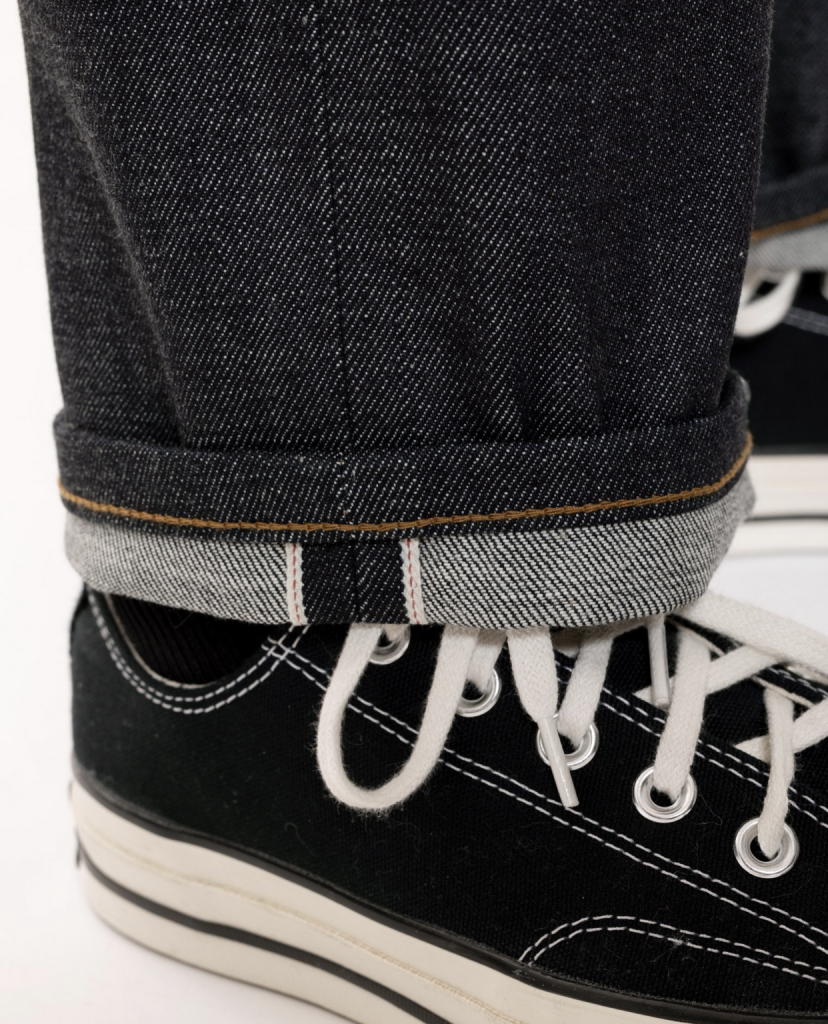
True jeans fanatics, Nudie Jeans bets on durability before anything else for their 100 % organic cotton denim made in Italy. Raw materials and second-hand have also become part of their production. View in detail their sustainable jeans here.
- Spain — Xiro Atlantic Denim
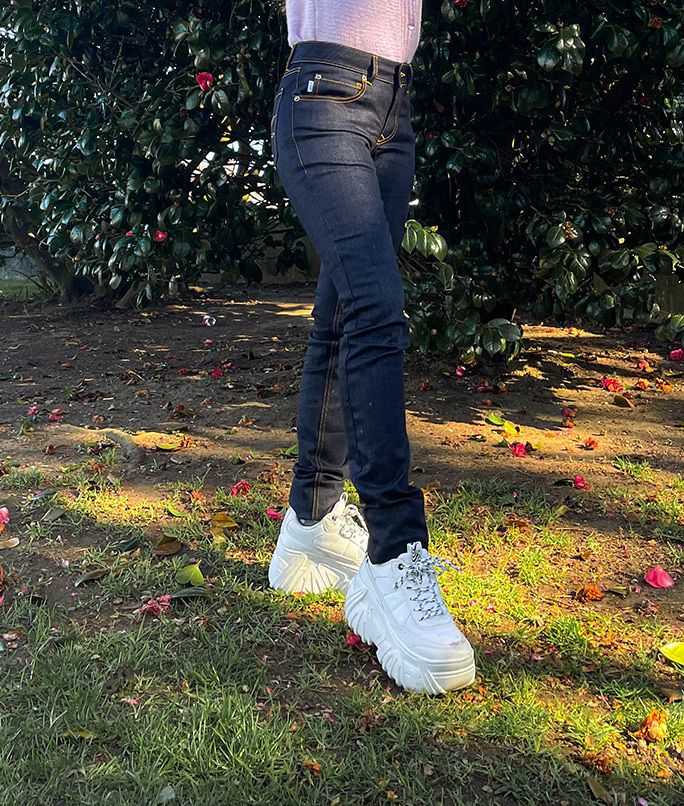
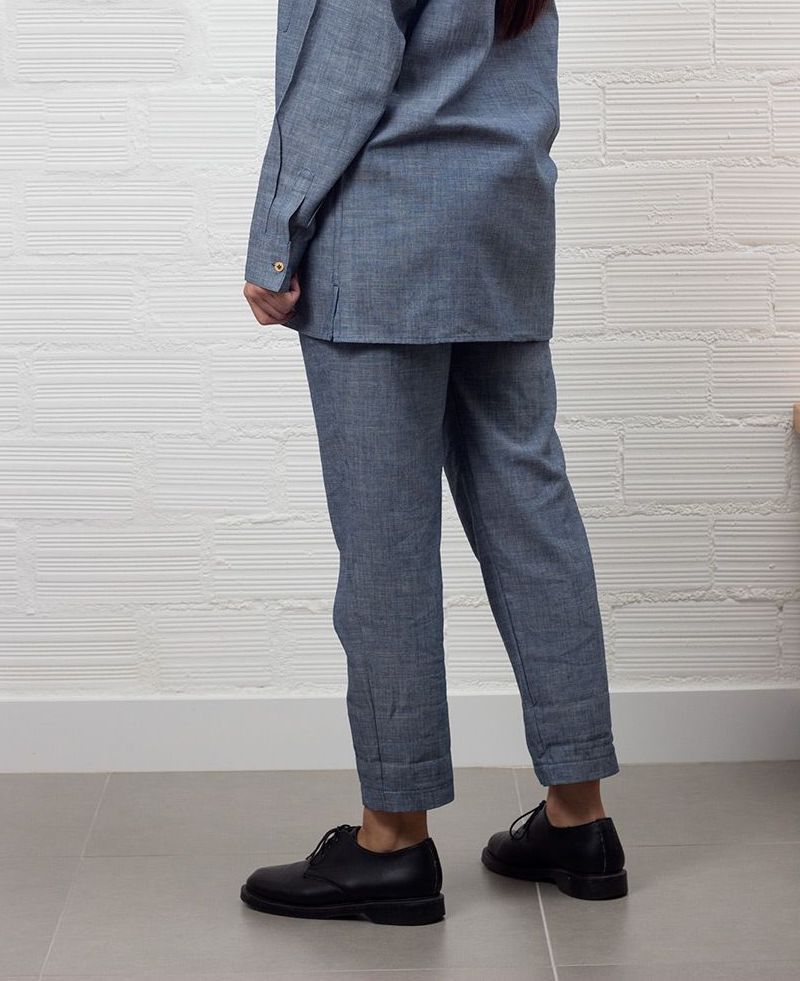
A fully traceable, local and sustainable production — Xiro Atlantic Denim’s purpose shows in their ethical production located in the northern region of Galicia, as well as in their organic fabrics and dyes.
And if you want to know more about the sustainability of your favourite fashion brands, don’t forget to check out the Fashion Transparency Index.
Note: this article contains affiliate links. This concerns two (2) pieces presented here, by Nudie Jeans.
